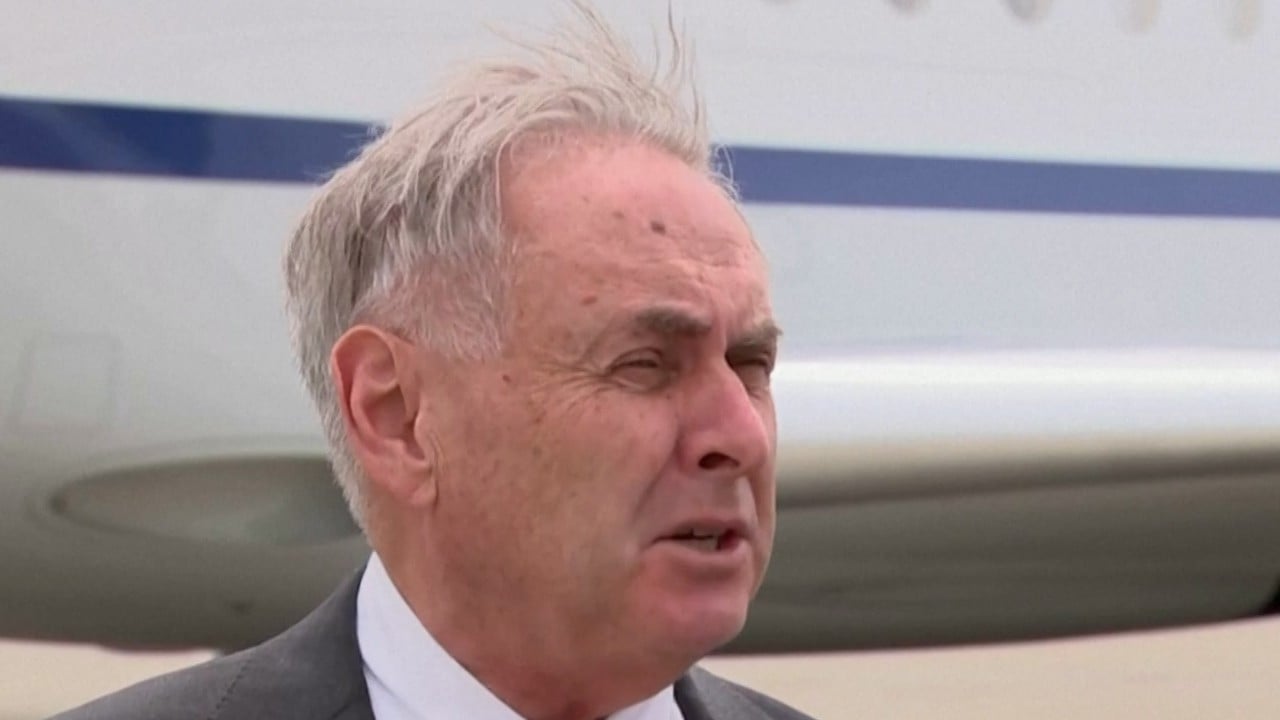
Exclusive | China’s foreign minister Qin Gang to visit Australia in July for ‘reciprocal visit’ as Beijing-Canberra ties ease
- China’s foreign minister Qin Gang will visit Australia in July amid improving ties between Beijing and Canberra
- On Thursday, Australian trade minister Don Farrell arrived in China for a three-day visit that will include a meeting with his Chinese counterpart Wang Wentao on Friday
China’s foreign minister Qin Gang will visit Australia in July, according to a source close to the Chinese government and an Australian academic, with “the reciprocal visit” the latest in a series of high-profile political and trade-related moves.
In terms of removing trade blockages, the path has been set – coal, cotton, copper already gone. Barley is in the process of being resolved
“I expect there will be no barley tariffs in three months’ time. That’ll then set the model for dealing with wine. Given all that, maintaining blocks on goods like lobster makes no sense.”
Qin’s trip to Australia will focus on the “2023 Foreign and Strategic Dialogue – the reciprocal visit following Penny Wong going to Beijing last December for the 2022 dialogue,” added Laurenceson.
The source close to the Chinese government confirmed the timing of Qin’s trip to Canberra without providing further details, but China’s Ministry of Foreign Affairs did not respond to request for comment.
On Friday, a statement from Australia’s Department of Foreign Affairs and Trade said that Wong “looks forward to the next opportunity to meet minister Qin Gang,” without elaborating on the possibility of any future meetings.
Wong and Wang Yi took part in the 2022 dialogue, that is related to bilateral, regional and international issues, at the end of last year, which coincided with the 50th anniversary of the two countries’ diplomatic relations.
The commerce ministry in Beijing confirmed details of Farrell’s trip later on Thursday, according to multiple reports, with the foreign ministry adding that China and Australia can solve each other’s trade concerns through constructive dialogue.
“During my visit, I will be advocating strongly for the full resumption of unimpeded Australian exports to China – for all sectors – to the benefit of both countries and in the interests of Australian exporters and producers,” Farrell said, who will also co-chair the 16th Joint Ministerial Economic Commission, which last convened in Beijing in 2017, with Wang Wentao.
Relations between China and Australia turned sour in 2020 after the then-Morrison administration asked for a probe into the origin of the coronavirus with other world leaders.
Beijing responded with unofficial bans on Australian products, including lobsters, coal, cotton and logs, while it also imposed official import tariffs on wine and barley.
Albanese could visit China in September, October after ‘in-principle’ invite
“Commodities, energy, agriculture, tourism and education will underpin our export mix for decades to come, but China’s energy transformation offers new economic opportunities that can also unlock Australia’s potential as a green economy leader in our region,” he added.
On Thursday, it was reported that Australia’s Core Lithium, a partner of Sichuan Yahua that sells lithium batteries to US car manufacturer Tesla, had been granted approval to expand its mining operation in the Northern Territory.
Additional reporting by Ralph Jennings


